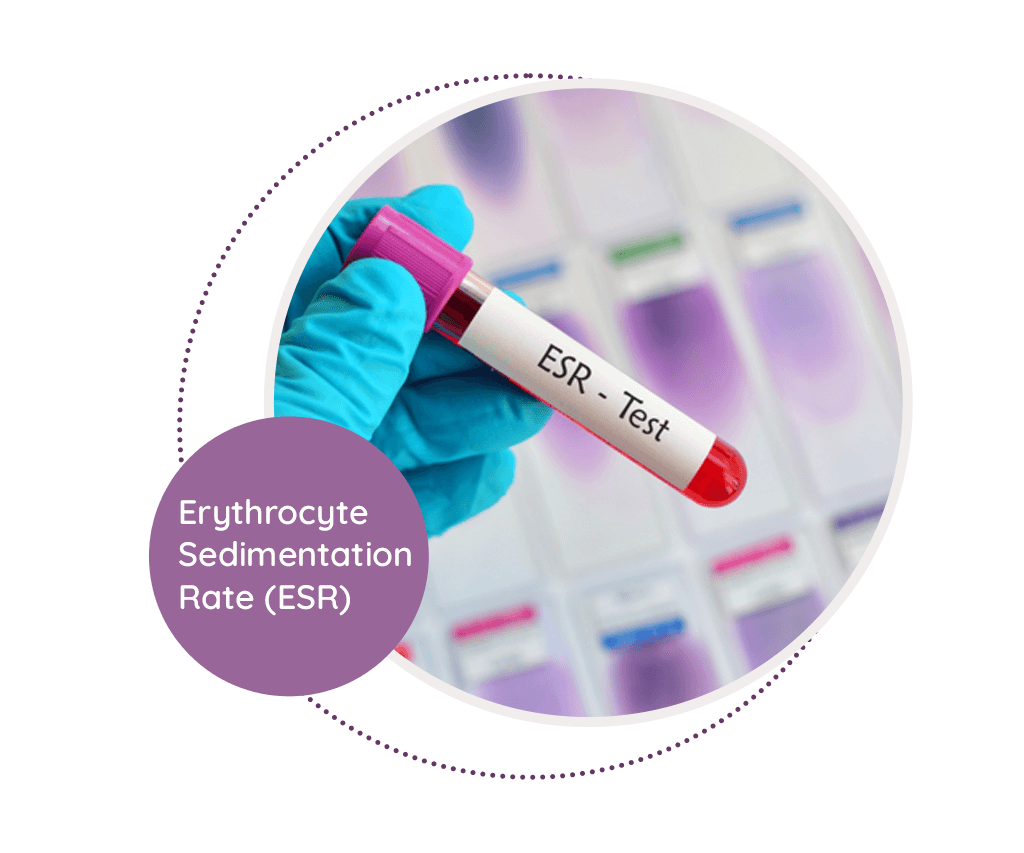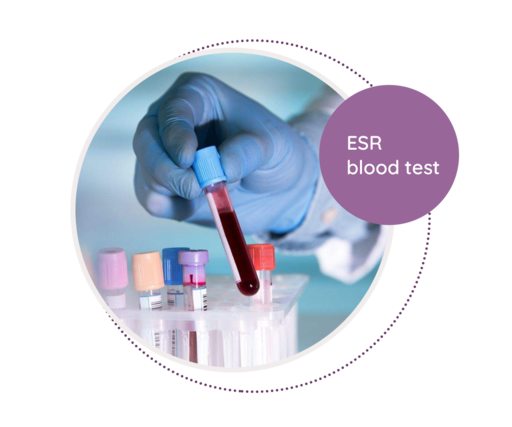Erythrocyte Sedimentation Rate
Test
Erythrocyte Sedimentation Rate (ESR)
Erythrocyte Sedimentation Rate (ESR) is measured through a blood test, where the rate at which the erythrocyte (or red blood cells) settle at the bottom of the test tube containing the blood sample. Healthy red blood cells settle relatively slowly. Erythrocytes that settle faster than the normal rate indicate inflammation in your body. Inflammation can be caused by infections, injuries, or chronic diseases.
The ESR test determines whether you have conditions that cause inflammation, such as vasculitis, bowel disease, or arthritis. This test is used to monitor an ongoing treatment or disorder as well.


An ESR test is advised when you have the following symptoms of inflammation:
- Fever
- Headache
- Loss of appetite
- Stiffness in joints
- Neck and shoulder pain
- Loss of weight
- Anemia
An ESR is a normal blood test and requires no prior preparation.
Test Table
| Test Parameter | Sample | Methodology | Temp. | Schedule | Reporting | Price (INR) | Clinical Information |
|---|---|---|---|---|---|---|---|
| Erythrocyte Sedimentation Rate (ESR) | WB-EDTA (3 ml) | Westergren method | A/R | Daily | 4 Hours | 60 | To detect & monitor the activity of inflammation |
